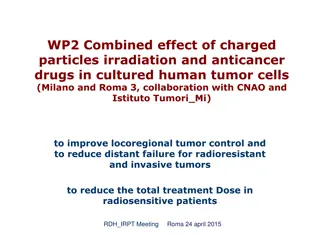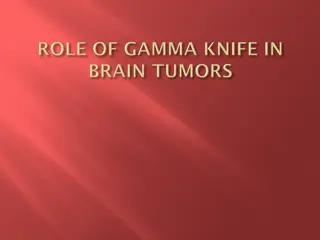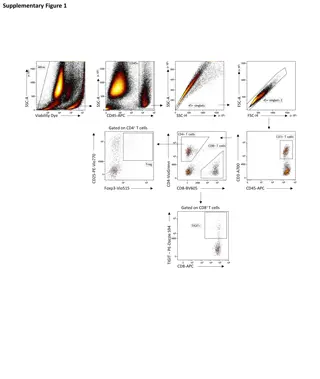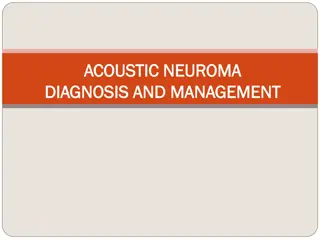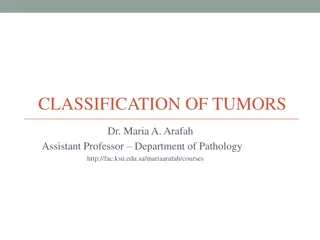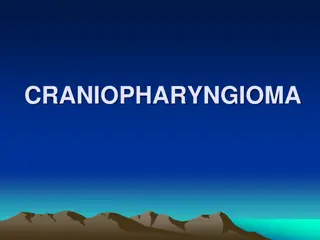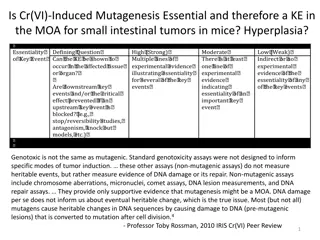
Understanding Wilms Tumor in Children
Learn about Wilms tumor, a rare kidney cancer that primarily affects children. Explore its definition, symptoms, causes, risk factors, prevention, diagnosis, and treatment. Discover how advancements in medical care have improved outcomes for young patients.
Download Presentation

Please find below an Image/Link to download the presentation.
The content on the website is provided AS IS for your information and personal use only. It may not be sold, licensed, or shared on other websites without obtaining consent from the author. If you encounter any issues during the download, it is possible that the publisher has removed the file from their server.
You are allowed to download the files provided on this website for personal or commercial use, subject to the condition that they are used lawfully. All files are the property of their respective owners.
The content on the website is provided AS IS for your information and personal use only. It may not be sold, licensed, or shared on other websites without obtaining consent from the author.
E N D
Presentation Transcript
StudyMafia.Org Wilms Tumor Submitted Submitted To: S Studymafia.org Studymafia.org tudymafia.org Studymafia.org To: Submitted Submitted By: By:
Table Contents Definition Introduction Symptoms of Wilms' Tumor Causes of Wilms' Tumor Risk-Factors of Wilms' Tumor Prevention of Wilms' Tumor Diagnosis of Wilms' Tumor Treatment of Wilms' Tumor Conclusion 2
Definition Wilms' tumor is a rare kidney cancer that primarily affects children. Also known as nephroblastoma, it's the most common cancer of the kidneys in children. 3
Introduction Wilms' tumor most often affects children ages 3 to 4 and becomes much less common after age 5. Wilms' tumor most often occurs in just one kidney, though it can sometimes be found in both kidneys at the same time. Over the years, advancements in the diagnosis and treatment of Wilms' tumor have greatly improved the outlook (prognosis) for children with this disease. 4
Causes of Wilms' Tumor It's not clear what causes Wilms' tumor, but in rare cases, heredity may play a role. Cancer begins when cells develop errors in their DNA. The errors allow the cells to grow and divide uncontrollably and to go on living when other cells would die. 6
Causes of Wilms' Tumor The accumulating cells form a tumor. In Wilms' tumor, this process occurs in the kidney cells. In rare cases, the errors in DNA that lead to Wilms' tumor are passed from a parent to the child. In most cases, there is no known connection between parents and children that may lead to cancer. 7
Risk factors of Wilms' Tumor African-American race. In the United States, African-American children have a slightly higher risk of developing Wilms' tumor than children of other races. Asian-American children appear to have a lower risk than children of other races. Family history of Wilms' tumor. If someone in your child's family has had Wilms' tumor, then your child has an increased risk of developing the disease. 8
Risk factors of Wilms' Tumor Aniridia. In aniridia (an-ih-RID-e-uh), the iris the colored portion of the eye forms only partially or not at all. Hemihypertrophy. Hemihypertrophy (hem-e-hi-PUR-truh-fee) means one side of the body or a part of the body is noticeably larger than the other side. 9
Prevention of Wilms' Tumor 1. Wilms' tumor can't be prevented by anything you or your child can do. 2. If your child has risk factors for Wilms' tumor (such as known associated syndromes), the doctor may recommend periodic kidney ultrasounds to look for kidney abnormalities. 3. Although this screening can't prevent Wilms' tumor, it may help detect the disease at an early stage. 10
Diagnosis of Wilms' Tumor A physical exam. The doctor will look for possible signs of Wilms' tumor. Blood and urine tests. These lab tests can't detect Wilms' tumor, but they can indicate how well the kidneys are working and uncover certain kidney problems or low blood counts. Imaging tests. Tests that create images of the kidneys help the doctor determine whether your child has a kidney tumor 11
Treatment of Wilms' Tumor 1. Treatment for Wilms' tumor may begin with surgery to remove all or part of a kidney (nephrectomy). Surgery is also used to confirm the diagnosis the tissue removed during surgery is sent to a lab to determine whether it's cancerous and what type of cancer is in the tumor. 2. Chemotherapy uses powerful drugs to kill cancer cells throughout the body. Treatment for Wilms' tumor usually involves a combination of drugs, given through a vein, that work together to kill cancer cells. 12
Treatment of Wilms' Tumor Depending on the stage of the tumor, radiation therapy may be recommended. Radiation therapy uses high-energy beams to kill cancer cells. Your child's doctor may recommend participating in a clinical trial. These research studies allow your child a chance at the latest cancer treatments, but they can't guarantee a cure. 13
Conclusion Wilms tumor is a form of kidney cancer that primarily develops in children. Nearly all cases of Wilms tumor are diagnosed before the age of 10, with two-thirds being found before age 5. Wilms tumor is often first noticed because of abdominal swelling or a mass in the kidney that can be felt upon physical examination. 15
References O Google.com O Wikipedia.org O Studymafia.org O Slidespanda.com
Thanks To StudyMafia.org







